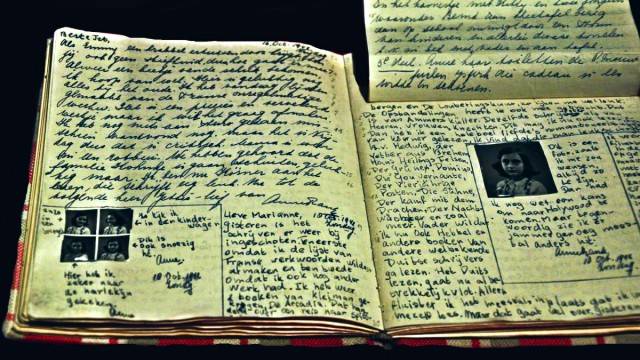
Oscar Wilde once wrote that memory is the diary that we carry with ourselves. I have long been fascinated by the ramblings and writings of people who keep journals, notebooks or diaries. Buying quality stationery and a beautiful volume – its pristine pages hungry for the inscribed word – has become a silent addiction. Putting my thoughts, experiences and emotions into words daily is much harder.
It involves the equivalent of a New Year’s resolution made daily, a commitment to sit down and to process one’s thoughts in a manner that one may want to re-read. My family members have kept diaries for decades – recording their personal happenings and political events. Like ancient mariners, they maintain a record of the flow of changing patterns in the weather and waves in their own lives.
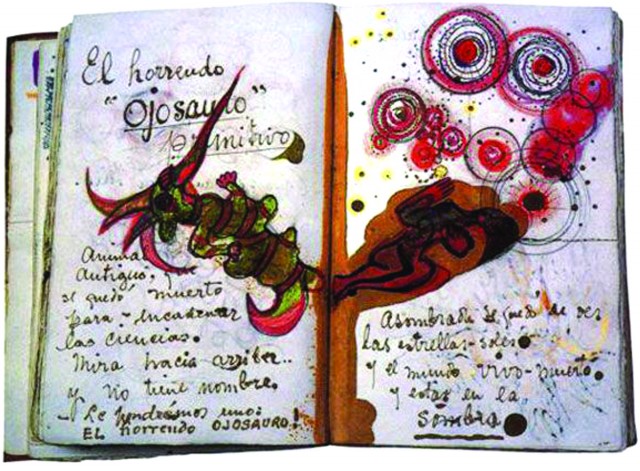
My own experience has been more choppy. As a child, my dairies would be replete with descriptions of meals that we had eaten, rather than who we played with. I did not realise it at the time, but this would be the foundation of my writing about food and culture.
History is best learned from diaries. These serve as daily autobiographies. My personal favorite is Leonardo da Vinci’s diaries which are the single best example of a life that personifies the Italian Renaissance – the ability to excel different disciplines and channel creativity in a million ways. In his diaries, he filled pages with descriptions, notations and diagrams on sculpture, paintings, geology, city maps, even intimate anatomy. How else would we have known that Leonardo had a fondness for pink tights?
Da Vinci dedicated volumes to the pursuit of one special interest - the movement of water. His scientific inquiries on water were codified in the Codex Leicester. It contains his investigations into the origins and development of rivers, diagrams on how water flows around obstacles, as well as patterns of erosion. His research fed into his completed works - into his paintings or his prescient inventions. His ideas of flying machines with wings or parachutes were so ahead of their time that they anticipated inventions that came almost four centuries later.
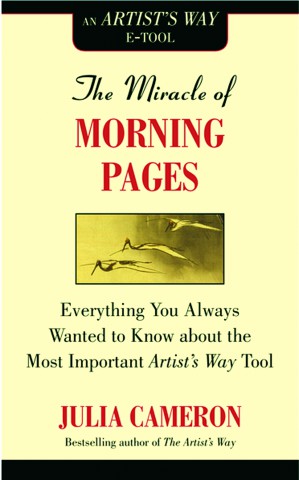
Da Vinci worked on loose sheets of paper for most of his lifetime. These were later bound into codices or notebooks (he left over 6,000 of these). For privacy, he practiced a form of mirror writing, from right to left. Since he was left handed, these must have taken him even longer to compose.
So what are the characteristics of diaries? They need to be personal, spontaneous and have a shelf life beyond daily bread. For the young 13-year-old Dutch girl Anne Frank, who spent over two years in an attic to hide from the Nazis, it became an escape from the claustrophobia of her condition. Marie Curie’s diaries record the journey towards her ground-breaking experiments into radioactivity. They were found to be so radioactive themselves that they had to be stored in a lead-lined box to avoid contamination.
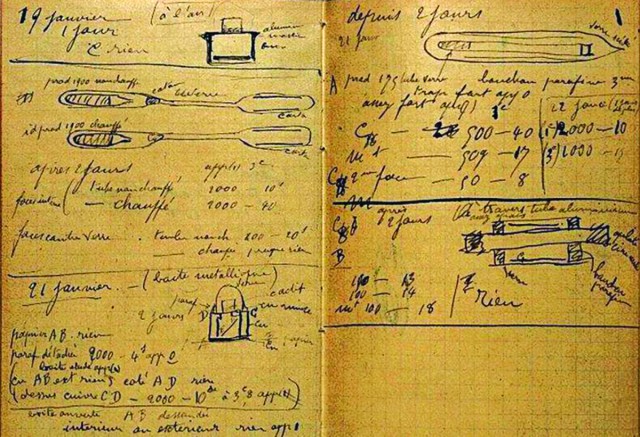
The diaries by creative artists are revealing and beautiful. I saw the journals of the Mexican artist Frida Kahlo. She gave each page a different colour. “I shall try out the pencils,’ she wrote, “sharpened to the point of infinity.”
Our coach at work recommended the modern equivalent of Morning Pages – Julia Cameron’s invention to unleash a sense of creativity in one’s diary. Her premise was that everyone has the power of creativity and writing three pages longhand every morning helps clear the clutter from one’s mind, to unleash it to focus on what could be useful and important. It is a powerful way to clear the internal noise from one’s head and millions swear by it.
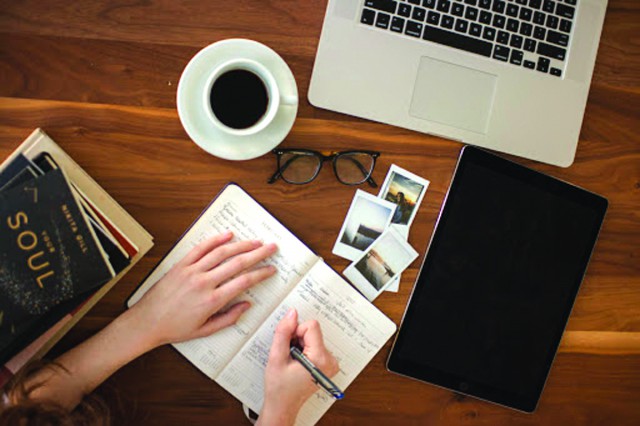
There are several apps that one can play with if one uses a cell phone – Morning Pages even tracks words to moods – and one’s repeated use of words can be reflective of one’s mental state. It was fascinating to have this approach in one’s own journey. One begins to ruminate about the same things – and usually those that are subconscious. Who amongst us has not woken up to midnight terrors about life, money, the future, the pandemic, our children, etc.? The list goes on as long as one’s life. What defines us is how we manage it and avoid patterns that are repetitive and negative.
Mae West advised in 1937 that you ought to keep a diary and some day it will keep you. My early records, perfectly preserved by my father with an archivist’s energy, are the letters that I wrote to my grand-parents, my letters from boarding school in Eastbourne written on blue Basildon bond, air letters and then emails that could be preserved in print. Clearly these were musings rather than journals of historical or social significance. They have a personal value for they allow me to remember things long forgotten, rather as old photographs evoke a sense of place, time and emotions at the time.

These inspired me to start a little experiment with our children in an attempt to distract them from electronic devices. Armed with journals for the summer holidays, they would have to spend 30 minutes each day recording the day whether to candles, or music or a way to unwind from the day’s sight seeing or adventures. These have made for a wonderful tapestry of family memories and are a trigger for their own thoughts – they go back to their handwriting and thoughts of when they were seven or eight with delight. My son celebrated his birthday at Lake Como in Italy, the record of which was “I turned eight today and jumped into the lake which was freezing but I swam with ducks. We had cheesy mozzarella pizza for lunch. We stopped outside George Clooney’s house which had big walls and a gate. Mama and Raeya were very excited. I don’t know who George Clooney is.” This reflected his sardonic dead-pan approach to life which has persisted to this day.
Travel diaries like this are priceless and actually have been a long cultural tradition, even in the East: with some Chinese and Japanese diaries elevated to works of art and were perhaps intended to be read. For many of us, the skill of putting thoughts into words and then using them to detect thought patterns is almost like being a detective with oneself – and who knows what dead bodies you might unearth in the process?
It involves the equivalent of a New Year’s resolution made daily, a commitment to sit down and to process one’s thoughts in a manner that one may want to re-read. My family members have kept diaries for decades – recording their personal happenings and political events. Like ancient mariners, they maintain a record of the flow of changing patterns in the weather and waves in their own lives.

My own experience has been more choppy. As a child, my dairies would be replete with descriptions of meals that we had eaten, rather than who we played with. I did not realise it at the time, but this would be the foundation of my writing about food and culture.
History is best learned from diaries. These serve as daily autobiographies. My personal favorite is Leonardo da Vinci’s diaries which are the single best example of a life that personifies the Italian Renaissance – the ability to excel different disciplines and channel creativity in a million ways. In his diaries, he filled pages with descriptions, notations and diagrams on sculpture, paintings, geology, city maps, even intimate anatomy. How else would we have known that Leonardo had a fondness for pink tights?
Da Vinci dedicated volumes to the pursuit of one special interest - the movement of water. His scientific inquiries on water were codified in the Codex Leicester. It contains his investigations into the origins and development of rivers, diagrams on how water flows around obstacles, as well as patterns of erosion. His research fed into his completed works - into his paintings or his prescient inventions. His ideas of flying machines with wings or parachutes were so ahead of their time that they anticipated inventions that came almost four centuries later.

Da Vinci worked on loose sheets of paper for most of his lifetime. These were later bound into codices or notebooks (he left over 6,000 of these). For privacy, he practiced a form of mirror writing, from right to left. Since he was left handed, these must have taken him even longer to compose.
These inspired me to start a little experiment with our children in an attempt to distract them from electronic devices. Armed with journals for the summer holidays, they would have to spend 30 minutes each day recording the day
So what are the characteristics of diaries? They need to be personal, spontaneous and have a shelf life beyond daily bread. For the young 13-year-old Dutch girl Anne Frank, who spent over two years in an attic to hide from the Nazis, it became an escape from the claustrophobia of her condition. Marie Curie’s diaries record the journey towards her ground-breaking experiments into radioactivity. They were found to be so radioactive themselves that they had to be stored in a lead-lined box to avoid contamination.

The diaries by creative artists are revealing and beautiful. I saw the journals of the Mexican artist Frida Kahlo. She gave each page a different colour. “I shall try out the pencils,’ she wrote, “sharpened to the point of infinity.”
Our coach at work recommended the modern equivalent of Morning Pages – Julia Cameron’s invention to unleash a sense of creativity in one’s diary. Her premise was that everyone has the power of creativity and writing three pages longhand every morning helps clear the clutter from one’s mind, to unleash it to focus on what could be useful and important. It is a powerful way to clear the internal noise from one’s head and millions swear by it.

There are several apps that one can play with if one uses a cell phone – Morning Pages even tracks words to moods – and one’s repeated use of words can be reflective of one’s mental state. It was fascinating to have this approach in one’s own journey. One begins to ruminate about the same things – and usually those that are subconscious. Who amongst us has not woken up to midnight terrors about life, money, the future, the pandemic, our children, etc.? The list goes on as long as one’s life. What defines us is how we manage it and avoid patterns that are repetitive and negative.
Mae West advised in 1937 that you ought to keep a diary and some day it will keep you. My early records, perfectly preserved by my father with an archivist’s energy, are the letters that I wrote to my grand-parents, my letters from boarding school in Eastbourne written on blue Basildon bond, air letters and then emails that could be preserved in print. Clearly these were musings rather than journals of historical or social significance. They have a personal value for they allow me to remember things long forgotten, rather as old photographs evoke a sense of place, time and emotions at the time.

These inspired me to start a little experiment with our children in an attempt to distract them from electronic devices. Armed with journals for the summer holidays, they would have to spend 30 minutes each day recording the day whether to candles, or music or a way to unwind from the day’s sight seeing or adventures. These have made for a wonderful tapestry of family memories and are a trigger for their own thoughts – they go back to their handwriting and thoughts of when they were seven or eight with delight. My son celebrated his birthday at Lake Como in Italy, the record of which was “I turned eight today and jumped into the lake which was freezing but I swam with ducks. We had cheesy mozzarella pizza for lunch. We stopped outside George Clooney’s house which had big walls and a gate. Mama and Raeya were very excited. I don’t know who George Clooney is.” This reflected his sardonic dead-pan approach to life which has persisted to this day.
Travel diaries like this are priceless and actually have been a long cultural tradition, even in the East: with some Chinese and Japanese diaries elevated to works of art and were perhaps intended to be read. For many of us, the skill of putting thoughts into words and then using them to detect thought patterns is almost like being a detective with oneself – and who knows what dead bodies you might unearth in the process?

